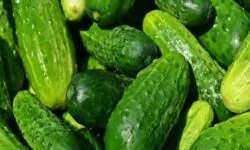Ecclesiastes 4. As the Bible says:
Content of the Chapter
Miseries of oppression. (1-3) problems of envy. (4-6) The madness of greed. (7,8) The advantages of mutual assistance. (9-12) The changes of royalty. (13-16)
Ecclesiastes considers how many people there are who live all their lives suffering, oppressed by their superiors and never dry their tears. All power is on the side of the oppressors. This leads Ecclesiastes to one of its darkest statements yet. He says that it is quite obvious that it is better to be dead than to be alive. But it is even better never to have been born. Man, dark things.
And to make matters worse, the only reason anyone bothers to work and do better at work is simply to catch up with the guy next door, or because they envy what someone else has. And guess what that is? Yes. More vanity. And “chasing the wind. Point out that frightened “Word of the Day” again.
Ecclesiastes lashes out at “fools” once again. While other people are working too hard at their envious struggles, the fools simply sit with their hands together and “consume their own flesh” (4:5).
Ecclesiastes speaks of people who are alone, lonely individuals, who still work hard. But who do they work for, if not themselves? No one. Then they are depressed and confused. Ecclesiastes says that it would be better to have some friends. It seems that only one or two are needed. But wait… is this the first time someone has said “Two heads are better than one”? (4: 9)
Maybe if you have two people, you can do more: you can huddle together to keep warm and help each other when one of you falls. It is also better to be young, poor and wise, than to be an old and rich king who no longer knows how to follow advice.
Ecclesiastes says he sees young and energetic people who continuously enter and take the place of exhausted old men. But what happens when they (the old young people) get old and burn out? Well, it’s time for another rewind.
Commentary on Ecclesiastes 4: 1-3
It hurt Solomon to see that he could prevail against the right. Wherever we go, we see melancholy evidence of the wickedness and misery of humanity, trying to create problems for themselves and others. Therefore, barely used, men are tempted to hate and despise life.
But a good man, though he is wrong while in this world, cannot have reason to wish that he had never been born, for he is glorifying the Lord, even in fires, and will be happy at last, forever happy.
Ungodly men have more reason to desire the continuation of life with all its afflictions, for a far more miserable condition awaits them if they die in their sins. If human and worldly things were our main good, not existing would be preferable to life, considering the diverse oppressions here below.
Commentary on Ecclesiastes 4: 4-6
Solomon realizes the sources of problems of those who do good, and includes all those who work diligently and whose efforts are crowned with success. They often become great and prosperous, but this generates envy and opposition. Others, seeing the annoyances of an active course, foolishly expect more satisfaction in laziness and idleness.
But idleness is a sin that is its own punishment. Let us allow ourselves by honest industry to cling to the handful, so that we do not want the necessary, but do not grasp it with both hands full, which would only create an irritation of spirit. Moderate pain and profit are best.
Commentary on Ecclesiastes 4: 7,8
Often, the more men you have, the more you would have; and in this you are so intent that you do not enjoy what you have. Selfishness is the cause of this evil. A selfish man cares for no one; there is no one to care for but himself, yet he will scarcely permit the necessary rest for himself and the people he employs.
He never thinks that he has enough. He has enough for his vocation, for his family, but he does not have enough for his eyes. Many are so focused on the world that, in their search, they are saddened, not only by God’s favor and eternal life, but also by the pleasures of this life.
Distant relationships or strangers who inherit the wealth of such a man are never grateful to him. Covetousness is strengthened by time and habit; men who stagger to the edge of the grave cling and cling more.
Unfortunately, and how often do we see men who profess to be followers of Him, who, “though he was rich, yet for our sakes became poor,” eagerly gather money and hold it back, usually excusing themselves by speaking of the need of care and the danger of extravagance.
Related Topics

LAMENTATIONS 5

LAMENTATIONS ITS MEANING

ECCLESIASTES 4: 12

ECCLESIASTES 3: 1

ECCLESIASTES: MEANING

MEANING OF THE GENESIS
Other Topics of Interest in ALPHAPEDIA

💚 WHAT IS PHASE IN ELECTRICITY ?

FREE PILOT COURSE

CUCUMBER: Fruit or Vegetable. Benefits and Properties

FREE BACHELOR DEGREE IN HERBALISM

💚 The World of Rough Texture: Definition and Examples

FREE PhD in KINESIOLOGY
Image of the Bible



